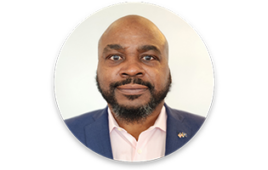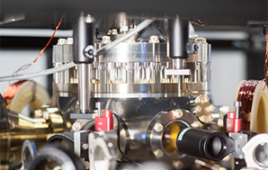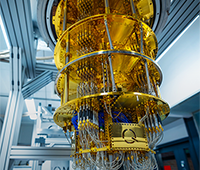 “When I was growing up, I thought the ‘gender war’ was over and women had won. But it’s still not over,” says Amy Yin ’14, cofounder of Harvard Women in Computer Science (Harvard WICS).
“When I was growing up, I thought the ‘gender war’ was over and women had won. But it’s still not over,” says Amy Yin ’14, cofounder of Harvard Women in Computer Science (Harvard WICS).
“The biases may be more subtle now, but the statistics are not. When I interned at Facebook last summer, I was the only woman on a team of twelve,” says Yin, who is concentrating in computer science. “There’s a saying that ‘if you can’t see it, you can’t be it,’ which is why we wanted to develop a community of women in computer science.”
Harvard WICS organized a two-day conference this weekend called Women Engineers Code (WECode) that brought together some of the most successful women working in computer science with young women studying computer science at 40 colleges and universities around the nation. The conference, held at the Harvard School of Engineering and Applied Sciences (SEAS), offered hands-on training from sponsors that included Google, Facebook, and Microsoft, keynote speeches from entrepreneurs and senior executives, mentoring lunches, social events, and an 8-hour Sunday “hackathon” at the Harvard Innovation Lab.
“WECode allows women to sit down together and have important conversations that might never have happened organically,” said Yin.
The conference’s first keynote speaker was Rebecca Parsons, Chief Technology Officer at ThoughtWorks, a Chicago-based software design firm that also sponsored WECode. “Women bring a different perspective to solving problems,” said Parsons, who has three decades’ experience in computer science.
Parsons said she has witnessed remarkable progress toward inclusiveness, but still sees challenges ahead. “I was told when I was in school that women were incapable of understanding math and science. Today, saying something like that simply isn’t socially acceptable. The biggest challenge now is that people may not fully recognize the kinds of subtle biases that still exist,” she said. “When hiring, for example, people tend to look for someone like them, people they’re comfortable with.” This works against women. “If we can make talking about bias less charged, we’ll be much better off,” Parsons concluded.
Margo I. Seltzer, Herchel Smith Professor of Computer Science at Harvard SEAS, offered a similar viewpoint. “Women are still underrepresented in many aspects of STEM, and underrepresentation leads to continued underrepresentation,” she said. “We all need to work towards making our workplaces and communities more welcoming.”
Seltzer said she has observed progress at Harvard, where currently 28% of computer science concentrators are women (above the national average of 20%). “We’re delighted to see increased participation by women in our courses and concentration,” Seltzer said. “I don’t think the problem is solved, but the messaging that all are welcome does seem to be helping.”
Yin believes that eradicating cultural stereotypes about women and technology is also key. “Harvard is doing a lot to encourage women to get into technology, and to be more technical in general,” she said. “It’s great, because a lot of women think you can’t be social if you’re in computer science, that people will stigmatize you as a nerd, that guys will be intimidated by you, that you won’t find a boyfriend or a husband.”
And men need to be part of the solution too, Yin said: “We’re about to start an ‘Allies’ program based on what Harvard Business School has done. We want to get men involved in discussing their perceptions about women in computer science. We need to talk about gender-related problems, like why only 7% of venture capitalists are women and how this impacts what companies get funded.”
David C. Parkes, George F. Colony Professor of Computer Science and Area Dean for Computer Science, is focused on the work ahead: “We’ve managed to close the gender gap a bit, but I think I speak for all my colleagues when I say that we won’t be happy until” the gap is gone.
Parkes, who helped judge the Sunday hackathon, pointed to the growing number of women in Harvard’s introductory programming course, CS 50. Women filled 37% of the seats in CS 50 this year—an all-time high. “Our target for the entire concentration must be 50 percent,” he said.
Yet, whether it’s on campus or in companies, Parkes sees no quick fixes: “There’s no single thing that will make the difference,” he said. “Rather, everything matters, and making progress will continue to require firm leadership from the top.”
Increasing women’s access to, and involvement in, engineering and computer science is a priority for SEAS Dean Cherry A. Murray. “We are creating a curriculum that is encouraging and embracing people from diverse backgrounds, rather than the traditional engineering school’s ‘weeding out’ atmosphere,” said Murray, who is also John A. and Elizabeth S. Armstrong Professor of Engineering and Applied Sciences and professor of physics. “We have seen an increase of over a factor of two in the percentage of women concentrating in computer science in the last five years, which I celebrate, but we’re aiming higher—to complete parity—because we want the very best minds coming into the field.”
Stanford computer science graduate Kimber Lockhart delivered Saturday’s second WECode keynote speech in front of a packed audience in the Science Center. Lockhart’s start-up firm Increo was acquired in 2009 by Box, a Silicon Valley company with a valuation of over $1 billion. Just six years out of college, she is now Senior Vice President at Box, where she leads software engineering teams.
“I hope many of you become software engineers because you want to change the world that way,” Lockhart said. “I am sometimes unable to build diverse teams because of so many women opting out” of software engineering. When Lockhart asked the audience how many of them wanted to found start-ups, about half raised their hands.
A young woman in the audience asked Lockhart how to overcome the “imposter syndrome,” the internalized feeling that women simply don’t belong in tech. Lockhart acknowledged its existence, but added, “You need to make decisions as if it weren’t there,” because “once you get in the door, you’ll be able to learn” everything you need.
If this weekend’s WECode conference is any indication, more young women will be walking through that door (even if it needs pushing open) and increasingly defining the future of technology.
http://www.seas.harvard.edu/news/2014/02/closing-gender-gap-in-computer-science



